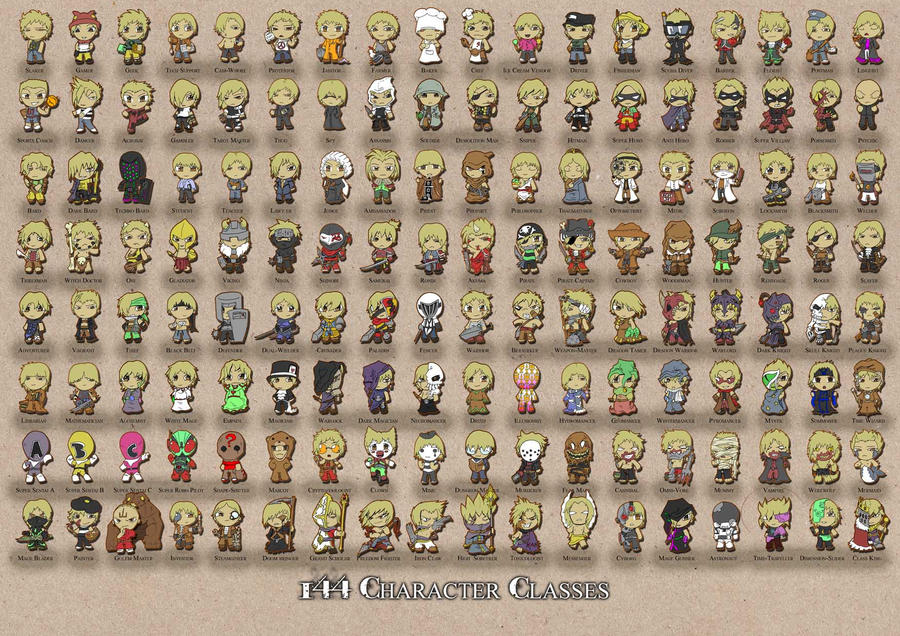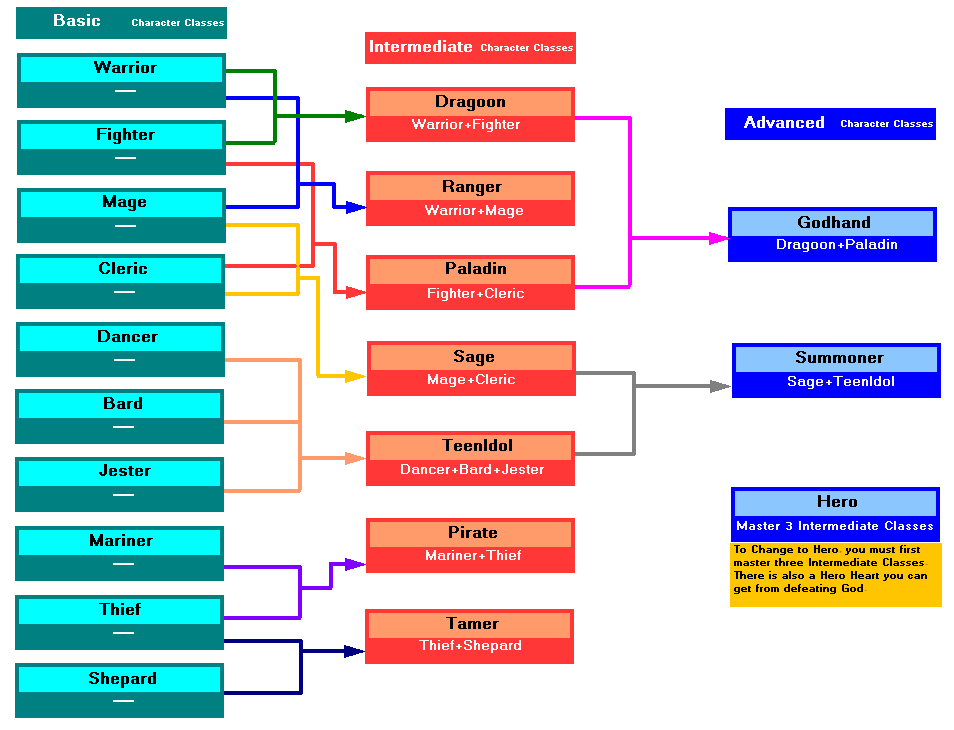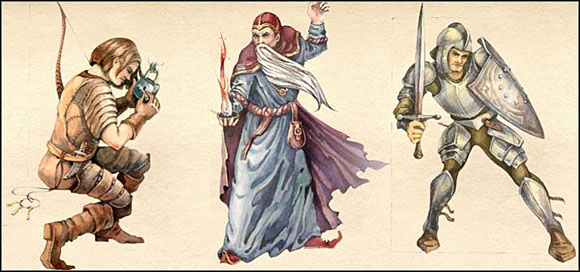Character class
Character classes are a common in many game systems approach to character creation and typing. A character class represents one particular archetype with its specific advantages and disadvantages. Since each character can only have one character class, so a balance of skills and weaknesses of the player characters is enforced and prevents the creation of almighty About heroes. Usually, the players select the character class in the creation of the character and can not change it in later life of the character. Popular was the character class system by Dungeons & Dragons and is still used in other systems. However, since the rigid classification is rather inflexible and thus severely limit the creativity of the players, especially modern game systems have deviated from this concept again and again. While Shadowrun works at character creation with a resource system, mainly give Storyteller systems, such as the World-of -Darkness games, only guidelines and shall leave the final decision about the playability of a character alone the " common sense " of the game master. Different story in computer games. " Common sense " can be programmed, whereas the schemes of the character classes are an easy to be implemented control agent, and also simplify the character creation for the inexperienced is difficult. Accordingly far the concept is still widespread.
In general, the character classes in three different prototypes can be traced back:
- Fighters: fighters rely primarily on brute force. The fight and the knowledge of arms and armor belonging to their lives. For a fighter are mainly physical attributes such as strength and endurance of importance, whereas intelligence and wisdom are rather insignificant.
- Rogues / Thieves: This class focuses primarily on stealth. Thieves can sneak, steal and open locks. If they have to fight, then my favorite ambush or with ranged weapons or light melee weapons. In particular skill is important for such classes.
- Casters: These classes dominate magic or similar skills. Especially in D & D and derived systems is thereby further distinction between offensive magicians and more defensive clerics in " unmagischen " worlds technicians can occupy this position. These classes put more on the mental attributes such as intelligence and wisdom.
These prototypes can be adapted to the game world and time, and can also be further detailed, divided or united to form "hybrid" character classes. So there are already at D & D bards as a mixture of thief and mage spells with additional songs, or the Paladin as a mixture of fighters and clerics with somewhat weaker combat skills or other small drawbacks, but with some healing or protection spells.
In non- fantasy role- playing the spellcaster is often replaced by a psyker or scientists or healers.
Character classes provide the direction and the limitations of characters. So a thief has certainly very useful skills for detective adventure, in open battle, he is against weak. Likewise, a cleric or mage is rather something to do with ancient writings as a mercenary. Some role-playing games limit the available character classes of the game because of the attitude ( Paladins can certainly be good or evil, but obey a fixed code of conduct), race (usually dwarves can not be mages ) a. In role-playing games, it is common that a group of different characters with different strengths and weaknesses together solves a problem.
Many of the more recently published game systems do not use more character classes. Occur capabilities based systems in their place. Here the player can influence the free development of his character. Role playing, who continue to use character classes, the concept of soft to often. The player can these often more or less freely combine ( D & D 3) or class only determines the membership in a group the game world as well as some special skills, but restricts the character otherwise not ( The WOD systems).










